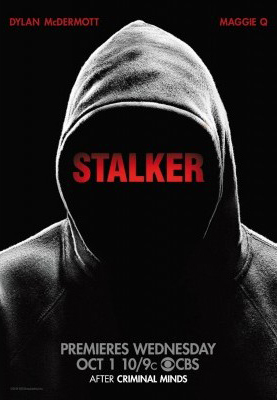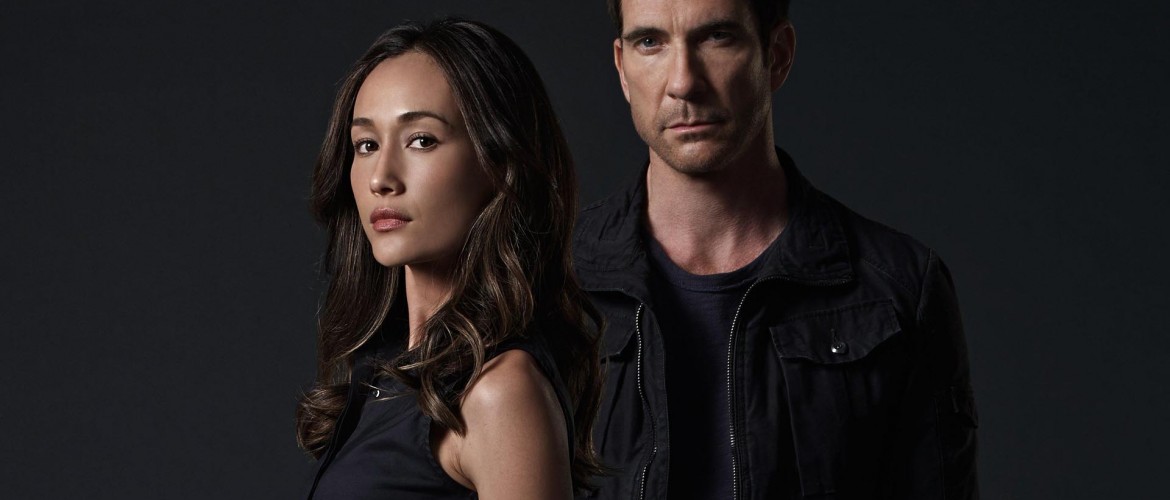 I am always on the hunt for new TV shows, and new detectives shows always catch my attention. I’ve been anticipating Hannibal’s Season 3 currently in production. It’s set for a summer premiere, so as I twiddle my thumb awaiting the return of that gruesomely delicious NBC show definitely on my favorite’s list, I have checked out what other series have to offer.
I am always on the hunt for new TV shows, and new detectives shows always catch my attention. I’ve been anticipating Hannibal’s Season 3 currently in production. It’s set for a summer premiere, so as I twiddle my thumb awaiting the return of that gruesomely delicious NBC show definitely on my favorite’s list, I have checked out what other series have to offer.
 That’s when I came across Stalker on CBS. The show airs on Wednesday nights at 10/9c.
That’s when I came across Stalker on CBS. The show airs on Wednesday nights at 10/9c.
What struck me, as opposed to Criminal Minds and basically almost every detective show out there, is that Stalker opens with someone being stalked versus someone getting murdered. Actually there has been very little death through the first dozen episodes. I don’t mind a few murderers here and there, especially when the “whodunnit” is stretched out over the course of a season or seasons (Twin Peaks, The Fall, The Killing, True Detective, and Broadchurch just to name a few) rather than the end of each episode (CSI, Law and Order, NCIS, Bones, etc.) But it’s definitely nice for a change when the stalkee is not being killed off, though in one of the most recent Stalker episodes a victim was unfortunately burned to death. Spoiler alert! Still, one of the two stalkees was spared (sorry for those of you who haven’t caught up with Season 1, episode 14).
I realize that every show, especially detective thrillers, must have a structure. Even reality, docu-series such as Intervention has structure:
- Step One: You are introduced to the addict, the audience follows him/her around to witness, in action, their jaw-dropping addictive behavior.
- Step Two: You find out their backstory, as you get to see Mr. or Ms. Addict as a cute, normal kid pre-addict years. This is where we are also introduced to family, friends and loved ones as they share their one-on-ones before the camera. They usually talk about the positives, what the addict had going for them and how they once were talented, smart and ambitious.
- Step Three: Most of the time there is some sort of crisis or turning point. Loved ones and the addict will discuss what that turning point was for them (death of a loved one, child abuse, car accident, victim of bullying, and etc.) Whatever excuse they have that made them turn to their addiction is discussed.
- Step Four: We go back to the addict’s uncontrollable behavior, and this is when we also see the perspective from loved ones who want this behavior to stop.
- Step Five: The intervention is called and a team of specialist attempt to intervene and talk some sense into the addict.
- Step Six: The addict chooses the help offered to him/her or they don’t.
- Step Seven: We follow up with the addict and find that he/she successfully has stayed clean or went back to whatever addiction they initially obtained treatment for.
Some detective/mystery types of crime shows try to change things around in order to be original. ABC’s Motive, categorized more as a procedural drama, is of course different in structure, maybe because it’s actually a Canadian television show. In fact, it was Canada’s No. 1 show from 2012-2013. Set in Vancouver, the audience is immediately introduced to the killer and the victim at the start of each episode. It’s not a “whodunnit” but a “why-did-the-killer-do-it,” hence the title. We try to unravel the motive behind the crime.
The structure of Stalker isn’t original; it wasn’t the structure of the show that concerned me. At first, I was extremely skeptical that the series would have legs to continue to create inventive stalking cases to bring audiences. I figured the writers could only go to the well so many times before the formula grew stale. For this very reason I grew rather tired of Criminal Minds, and for the fact that the writers must be instructed by the producers and show runner to use the word “unsub” as much as humanly possible to describe the potential killer. That gets under my skin like nothing else. I’ve tried counting how many times in an episode the word “unsub” is uttered. I gave up counting. And the way all the FBI agents sit around to discuss the case and brief local law enforcement, how they unnaturally rattle off the “unsub’s” psychology and finish each other’s sentences.
Stalker, on the other hand, doesn’t seem to have the contrived, unnatural dialogue that Criminal Minds is guilty of having. Although Stalker has a similar formula of solving the crime by the end of each episode, it does have an ongoing sub-plot that needs to be solved involving Beth Davis’s (Maggie Q) mysterious past that leaves her overly cautious and fearful to let her guard down. Davis, with the help of decorated homicide detective Jack Larson (Dylan McDermott) attempt to find out who would stalk and why they would stalk a potential victim. Yet, right under her nose Davis herself is getting stalked, which threatens to reveal a past she’s tried to keep buried. I thoroughly have enjoyed this running sub-plot that’s kept me at the edge of my seat.
I love the delayed gratification of solving a crime. That’s the one thing that most crime/detective shows are missing, the intrigue of an unsolved crime or puzzle that hasn’t quite been put together immediately by the end of each hour. I’d rather have something to look forward to, something to come back to and see how it gets resolved. It’s the same for sitcoms. Does character X finally get together with character Y, for example?
While we are originally introduced to the potential stalkee in the beginning of the episode, Stalker continues to introduce twists and turns by adding flavorful new characters in the mix. The audience must try to figure out who are these characters and how are they involved in the initial stalking crime.
I thoroughly enjoy Stalker and find it addicting. I hope that the show isn’t canceled. You never know with new shows and fickle ratings. You see them up one minute and down the next.
On a personal note, I am extremely impressed with how each episode ends with a dark remake of a pop song, to the point that the lyrics suddenly sound stalker-ish.
Another personal note to Maggie Q. I think that costume and design can afford to put you in something white once in while. You should also visit catering whenever you can and actually eat something. Because, Maggie, as much as I love your performance in Stalker, you’re way, way too skinny and can afford to gain a little weight. You can kick some serious butt, though.

